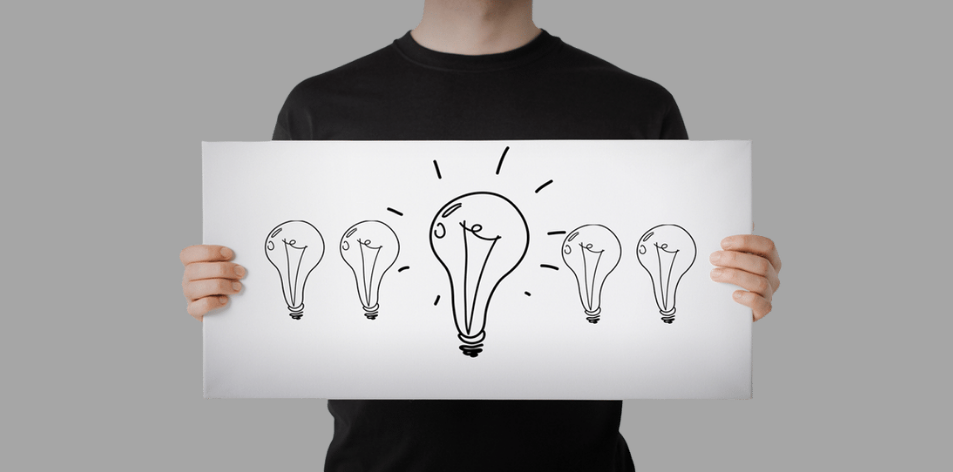
Man Has 3 Powers! – Positive Reflection Of The Week
The 3 Powers Of Man – Submitted by Shahwana
“I am a spiritual being of Divine Light, Divine Love and Divine Power.” – Master Choa Kok Sui
The power of thought is one of the greatest powers that everyone possesses. However, only a handful of people use it consciously.
The thoughts are often called the seeds, as they lead to actions, and this activity is twofold:
1. It is to be found in the faculty of discrimination that is behind all perception. All perception in nature is similar to looking out of a window to see what passes by.
2. Every thought carries with it the power over things.
There are a group of people who debate about the relation between will and desire as to which one influences the body and therefore cause actions in the world. The real answer to that question is actually none! Thought or what is called Kriya in Sanskrit is the only power that deals with things – and that is with thought-power (Kriya-Shakti). Therefore the non-reflex activities of the body originate from the thought-power.
For example: When you want to walk, or when you want to pick up an object from the floor, the reason why you body moves is the initial thought.
Monsieur Emile Coue, the renowned French psychologist, believed that whenever there is a conflict in the human mind between will and thought, it is always the thought that wins. This matter will be covered further in the section of Will Power.
Let’s take an example of someone who wants to learn how to drive but is afraid of hitting a telegraph pole in the street. This man goes out every morning on a quiet road to practice. He begins driving in a tentative and unsteady manner and in the beginning, he is not thinking about any poles, until one pole in the junction attracts his attention and begins saying to himself: “Oh I hope I shall not run into the pole.” And as he repeatedly says these words to himself, the thought of the pole gets bigger and stronger in his mind until it occupies his whole imagination, leaving a little room for the thought of the road. So he hits the pole. Therefore, the power of thought for the thing that occupied his imagination and filled his mind, dominated his action although he was desperately wishing not to run into the pole.
The power over the body of a steady and clear mental picture is shown in this example.
Thought can even affect the minds of others even at a distance and also leave its impression on physical matter.
“Everything is fluid of thought.” – Emerson
In the course of evolution, people with this power have solved many problems of life and nature and pushed the human race forward.
Thought basically creates two kinds of effects: a thought form and a thought wave and both can affect us and others in different ways.
Whenever we think of something, a thought-form and a thought-wave get created.
Thought waves affect the surroundings to a certain radius, creating a similar quality of the thought. The nearer we are to the sources of thought, the higher is the impact and as we go further away, the effect reduces. This is similar to the effect of a playing radio. The closer we are to the radio, the sound is higher and clearer. So the distance covered by a thought wave & its strength & persistence in influencing other mental bodies, depend on the strength & clarity of the original thought.
Thought-form on the other hand is direct. Thought forms about other people go directly to them & wait in their aura to get discharged. Once discharged they produce the same exact thought. These forms most of the time descend to the astral level.
Thoughts that are neither about us nor others just float in the air & sometimes get picked up by us. Most thoughts generated are this of this sort – vague & undetermined.
Thought-forms affect us, and others, in 3 different manners:
1. The thought-forms we create that are neither about us nor about others are left behind us. They are not attached to our aura, and not to any other person’s aura, but just floating in the air until they fade away.
2. The thought-forms that are created about us, will get attached to our aura and follow us wherever we go.
3. Thought-forms directed to another person or objective directly goes to that person and if it finds a vibration responsive to its own, will discharge itself.
“Be careful with concentrated thoughts. If they are within the realm of reality, they will materialize.” – Master Choa Kok Sui
Modern psychology has proved that new habits can be formed at any point of time in life. As we repeat the thought the nerve cells as well as emotional and mental bodies become so well organized and integrated that the desirable action or behavior follows almost automatically.
“As Kriya is used for gaining knowledge about material things and their relationships, and is also the creative power in material life, so Jnana acquaints us with the consciousness in living things and exerts the great power of love upon and among them.” – Ernest Wood
Jnana translates as wisdom, which is very different from knowledge. When knowledge is accompanied with wisdom, that is the true force that can lead humanity into perfection, since wisdom directs the knowledge to become profitable to the inner self. Without love and wisdom, knowledge may become destructive.
Things cannot have value in themselves, but the value is based upon the influence they create on people. So to understand the value of an action or an object, instead of asking “For what is it good?” we must ask “For whom is it good?” And measuring the value of something based on the effect they create on the consciousness is concerned with wisdom.
According to Shri Krishna, “Better than the sacrifice of any material object is the offering of wisdom, because all works without exception at last build up only wisdom. Realize this by means of reverence, enquiry and service. The wise, who see the truth, will direct you to wisdom.”
It means, that all the work that people have done in the world throughout history has perished into dust, but the fruit of the work still exists as wisdom in the human soul, and wisdom is not just pure knowledge of things accumulated by thought, but is the realization of life!
The example of wisdom combined with knowledge is seen in a teacher who is not only equipped with the knowledge of what he is teaching, but also is sensitive to the thoughts and feelings of his students and the state of their consciousness. That sensitivity is the work of the heart!
Wisdom is actually the real human feeling, and its corruption is desire. Wisdom is the love of living beings – the love of life; while desire is love of things.
Let’s take the example of someone who has too much desire for money. He works so hard and collects gold, jewellery and treasure and keeps them in a cellar. His selfishness and his desire for material things doesn’t allow him to share it with anybody. To feel good, he goes to this cellar everyday to swim in this ocean of prosperity. However, the fear of losing them doesn’t allow him to enjoy his wealth. His selfishness brings with it a shrinking from contact with others and leads to narrowing of his life. But on the other hand, Love expands and dispels fear. It brings with it life!
When people lose love, they lose their very lives, though their bodies are still alive.
The wisdom in all of us knows that we are all one, and it could not think that happiness could be achieved for anyone by injury to another!
To understand will power and its relation to thought power, let’s go back to the story of the man who was trying to learn driving but ending up hitting the telegraph pole because of his concentrated thoughts. Though the power of thought is clear in this demonstration, it doesn’t mean that will does not exist or it was defeated. The will in this story was suspended because the man was not willing – but wishing!
There is a huge difference between will and wish. Actually, the presence of wish or hope in the mind, shows lack of will! And the person who gives up to wishing, surrenders his will. Wishing is not a form of will, but an enlargement of desire!
For example, if your pencil is lying on the table and you are considering the question whether to pick it up or not, you will come to a conclusion that “I will pick it up,” or “I will not pick it up.” There is no wishing in this process because you are confident that picking up your pencil is within your power. But if the pencil weighed half a ton, or if you happened to think that it did so, then you might find yourself saying, “I wish I could lift the pencil up.”
The person who wishes therefore is unconfident of his power and acknowledges his dependence upon external chances. He is in a waiting state and hopes the world will do something that he desires.
So what is will then?
If the thought is the power that works among things, the will is the power that works among thoughts and feelings. It is concentration and attention. It is the power that subdivides the mind into the conscious and subconscious.
If the man who was learning to drive in the story knew this simple fact, instead of thinking about the telegraph pole, he would concentrate his thoughts on the road and forget about the pole, by focusing his mind on the road and where he wanted to go. If he had controlled his thought, instead of his hands, all would have ended up well.
Will is the soul, the self, realizing itself and exhibiting its power over all its own relations to the world of life and things.
“When a man acts from within without full knowledge of the consequences, he acts from what he is, not from what he thinks, and thus the will is in operation… An extreme measure of this is seen when a person wills to do a thing without knowing at all how to do it. Then he who wills the end, wills the means, for he is declaring the power of the Self within. He is performing a splendid act of concentration focusing all the powers of his heart and mind in one direction, and this concentration finally produces the result. The man who knows that he is master of his own consciousness sufficiently to produce this concentration can will when others cannot.” – Ernest Wood
References:
1. W. Leadbeater (1975). Power and Use of Thought. Theosophical Publishing House.
2. Ernest Wood (1952). The Seven Rays: A Theosophical Handbook . Theosophical Publishing House.
3. Master Choa Kok Sui (2013). Achieve the Impossible. Institute for Inner Studies Publishing Foundation Inc.
-An Article by Prana World
Shahwana Khanam – Pranic Healer


